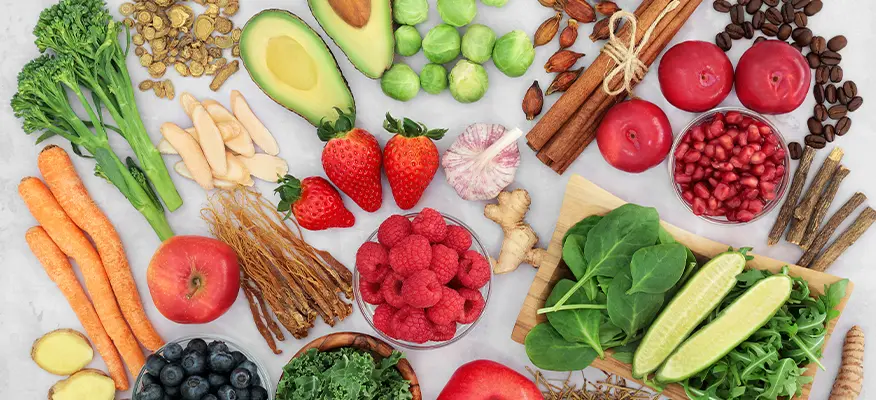Mix 2 tbsp into your bedtime routine…
Joint pain, a common ailment that can significantly impact our daily lives, often stems from inflammation within the joint structures. While various medical treatments are available, incorporating anti-inflammatory foods into our diet can offer a powerful and natural way to manage this discomfort and support long-term joint health. The food we eat has a profound effect on the inflammatory processes in our bodies, and by making conscious choices, we can potentially alleviate joint pain and improve our overall well-being. Let’s explore some of the most effective anti-inflammatory food groups and specific examples that can become your culinary allies in the fight against joint pain.
The Omega-3 Powerhouses: Fatty Fish
Fatty fish are at the forefront of anti-inflammatory nutrition, thanks to their rich content of omega-3 fatty acids, particularly EPA (eicosapentaenoic acid) and DHA (docosahexaenoic acid). These essential fats have been extensively studied for their ability to reduce inflammation throughout the body.
- How they help: Omega-3s can interfere with the production of inflammatory molecules like cytokines and prostaglandins. Regular consumption has been linked to reduced joint swelling, decreased stiffness, and lessened pain intensity, especially in conditions like rheumatoid arthritis.
- Examples: Salmon, mackerel, sardines, herring, and tuna. Aim for at least two servings per week.
- Tip: Opt for wild-caught varieties when possible, as they tend to have higher omega-3 content.
The Colorful Defenders: Berries
Berries, with their vibrant hues, are packed with antioxidants, particularly anthocyanins, which contribute to their rich pigments. These potent compounds possess significant anti-inflammatory properties.
- How they help: Antioxidants neutralize harmful free radicals in the body, which can contribute to cellular damage and inflammation. Anthocyanins, specifically, have been shown to inhibit inflammatory enzymes.
- Examples: Strawberries, blueberries, raspberries, and blackberries. Enjoy them fresh, frozen, or incorporated into smoothies and other dishes.
- Tip: A mix of different colored berries provides a wider range of beneficial antioxidants.
Liquid Gold: Extra Virgin Olive Oil
Extra virgin olive oil (EVOO) is more than just a healthy fat; it contains oleocanthal, a unique compound with anti-inflammatory effects that mimic those of non-steroidal anti-inflammatory drugs (NSAIDs).
- How it helps: Oleocanthal can inhibit the same inflammatory enzymes (COX-1 and COX-2) targeted by NSAIDs. Regular use in cooking and dressings may contribute to a cumulative anti-inflammatory effect.
- Tip: Choose cold-pressed, extra virgin olive oil to ensure the highest concentration of beneficial compounds. Use it for low to medium-heat cooking to preserve its properties.
The Crunchy Allies: Nuts and Seeds
Nuts and seeds offer a wealth of nutrients, including healthy fats, omega-3 fatty acids (ALA), vitamin E, magnesium, and zinc, all of which play a role in reducing inflammation and supporting joint health.
- How they help: These nutrients can help combat oxidative stress and support the body’s natural anti-inflammatory processes.
- Examples: Almonds, walnuts, chia seeds, and flaxseeds. Enjoy a handful as a snack or add them to meals.
- Tip: Grind flaxseeds for better absorption of their omega-3 content.
The Golden Spice: Turmeric
Turmeric, a vibrant yellow spice, contains curcumin, a powerful compound renowned for its potent anti-inflammatory and antioxidant properties.
- How it helps: Curcumin can block various inflammatory pathways in the body and may provide significant relief from joint pain and stiffness.
- Tip: Enhance curcumin absorption by pairing turmeric with black pepper, which contains piperine. Incorporate turmeric into curries, soups, smoothies, or consider a supplement (after consulting your doctor).
The Pungent Duo: Garlic and Onions
These flavorful vegetables contain compounds that have demonstrated anti-inflammatory effects and may help alleviate some forms of joint pain.
- How they help: Garlic contains sulfur compounds like diallyl disulfide, which may work against enzymes that damage cartilage. Onions also contain anti-inflammatory compounds like quercetin.
- Tip: Incorporate them generously into your cooking for both flavor and potential health benefits.
The Leafy Powerhouses: Dark Green Vegetables
Spinach, kale, and other dark leafy greens are packed with vitamins, minerals, and antioxidants, including vitamin K, which may play a role in reducing inflammation.
- How they help: Their high nutrient density supports overall joint health and helps combat inflammation.
- Tip: Aim for a variety of leafy greens in your diet through salads, smoothies, and cooked dishes.
The Cruciferous Champions: Broccoli and Beyond
Broccoli, cauliflower, and Brussels sprouts contain compounds like sulforaphane, which has shown potential in blocking enzymes that contribute to joint inflammation and cartilage damage.
- How they help: These vegetables offer a range of antioxidants and anti-inflammatory compounds.
- Tip: Include them in your diet through steaming, roasting, or stir-frying.
The Zesty Protectors: Citrus Fruits
Oranges, grapefruits, lemons, and limes are rich in vitamin C, a crucial nutrient for collagen production, which is vital for maintaining healthy joint tissue. Adequate vitamin C intake may also help prevent inflammatory arthritis.
- How they help: Vitamin C is a powerful antioxidant that supports overall immune function and joint health.
- Tip: Enjoy fresh citrus fruits or add their juice and zest to your cooking and drinks.
Embracing a Holistic Approach: Diet as a Foundation for Joint Health
While incorporating these anti-inflammatory foods can be incredibly beneficial, remember that a holistic approach to diet is key. An overall eating pattern rich in fruits, vegetables, whole grains, lean protein, and healthy fats, while limiting processed foods, sugary drinks, and unhealthy fats, will create a more anti-inflammatory environment within your body and support long-term joint health. Consider adopting an anti-inflammatory diet like the Mediterranean diet for sustained benefits.
Disclaimer: This information is intended for general knowledge and informational purposes only, and does not constitute medical advice. If you are experiencing persistent joint pain, it is crucial to consult with a qualified healthcare professional for proper diagnosis and treatment. Dietary changes should be discussed with your doctor, especially if you have underlying health conditions or are taking medications. Sources and related content





